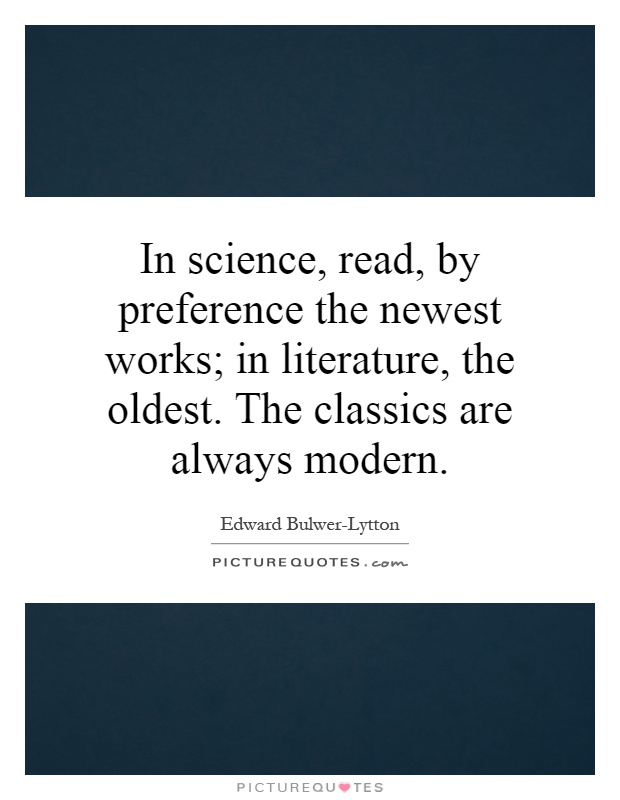In science, read, by preference the newest works; in literature, the oldest. The classics are always modern

In science, read, by preference the newest works; in literature, the oldest. The classics are always modern
Edward Bulwer-Lytton, a prominent English novelist and politician of the 19th century, is often credited with the famous quote: “In science, read, by preference the newest works; in literature, the oldest. The classics are always modern.” This statement encapsulates the timeless nature of classic literature and the ever-evolving nature of scientific knowledge.Bulwer-Lytton’s advice to prioritize the newest works in science is rooted in the idea that scientific knowledge is constantly expanding and evolving. New discoveries and advancements in technology are made at a rapid pace, leading to a continuous stream of new information in the field of science. By staying up-to-date with the latest research and publications, one can ensure that they are well-informed about the most current developments in their chosen scientific discipline.
On the other hand, Bulwer-Lytton suggests that when it comes to literature, it is best to turn to the classics. Classic works of literature have stood the test of time and continue to resonate with readers across generations. These timeless works often explore universal themes and human experiences that are relevant in any era. By reading the oldest works in literature, one can gain a deeper understanding of the human condition and appreciate the enduring quality of great literature.
Bulwer-Lytton’s assertion that “the classics are always modern” speaks to the enduring relevance and significance of classic literature. Despite being written centuries ago, classic works such as Shakespeare’s plays, Homer’s epics, and Jane Austen’s novels continue to captivate readers with their timeless themes, complex characters, and masterful storytelling. These works have a timeless quality that transcends the boundaries of time and culture, making them just as relevant and impactful today as they were when they were first written.












 Friendship Quotes
Friendship Quotes Love Quotes
Love Quotes Life Quotes
Life Quotes Funny Quotes
Funny Quotes Motivational Quotes
Motivational Quotes Inspirational Quotes
Inspirational Quotes